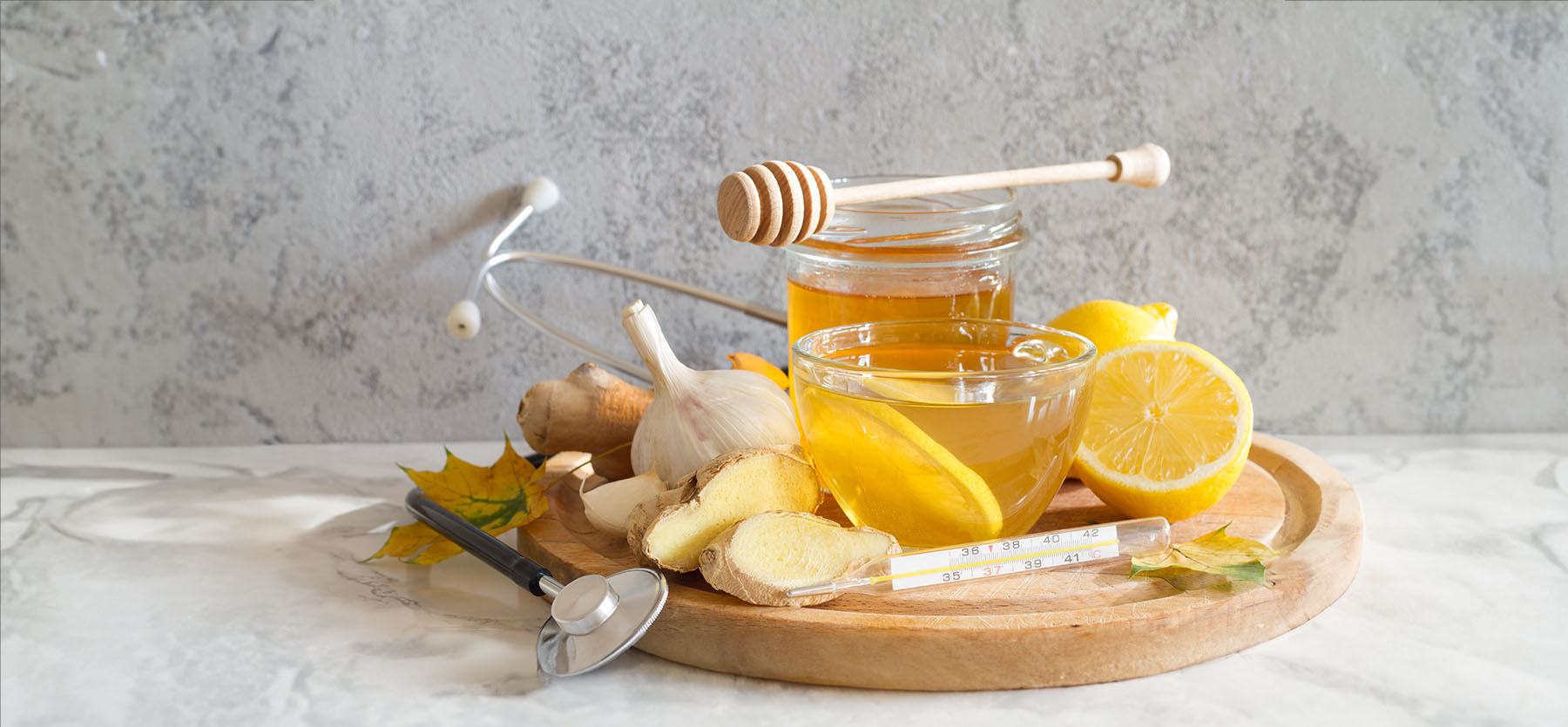How Effective Are Natural Antibiotics?

The interest in natural medicine is hardly a new phenomenon. For thousands of years, starting with Ayurvedic and traditional Chinese medicine, practitioners have been exploring the medicinal properties of our natural world. You’ll find that interest alive and well today with the herbs, supplements, probiotics, and other remedies at your local pharmacy or grocery store.
Support your immune system.
Even though our world of modern medicine provides many advanced antibiotics and other medications, Karen Koffler, M.D., the medical director of the University of Miami’s Osher Center for Integrative Medicine, says that natural antimicrobials and antibiotics can still play an important role. For one, regular use of the right ingredients can support your immune system and prevent infection in the first place. For some illnesses, natural remedies can even play a role in making you feel better.
In particular, natural remedies can help during cold and flu season, when many of our afflictions are caused by viruses rather than bacteria. According to Consumer Reports, as many as 43% of the antibiotics prescribed by doctors are unnecessary since the illness at hand is caused by a virus. The potential fallout from a misuse of antibiotics is side effects for the patient and the increase in antibiotic-resistant strains of bacteria.
Find the balance between natural medicine versus conventional antiobiotics.
Dr. Koffler says the key to approaching natural medicine is to not look at these remedies as a replacement for conventional antibiotics but rather as a complementary approach that can boost immunity.
“I think where we get into trouble is when we adore all things natural and shun all things pharmaceutical, and vice versa,” she says. “Your overall approach to your health and immunity needs to be more nuanced.”
For example, suppose you’re just trying to stay healthy daily and keep your immune system in balance. In that case, Dr. Koffler recommends taking a daily vitamin D supplement or a mushroom extract to stay infection-free.
“Science has shown that some of these compounds pretty clearly fine-tune and support the immune system with regular use,” she says.
Natural remedies can also play a role in treating and reducing the severity of viral infections like colds or flu, says Dr. Koffler. She says that Sambucol (an elderberry extract), astragalus, garlic and other herbs and supplements have all shown effectiveness in this area. Other remedies that have a solid scientific background, according to the Science Repository, include honey, ginger, turmeric, echinacea and neem.
Of course, it’s important not to look at these remedies as a replacement for conventional medicine, especially if symptoms are severe or long-lasting or a bacterial infection is present. That’s when you should see your primary care provider to ensure you have the right medication for the issue at hand, says Dr. Koffler.
Ultimately, the best approach is to make choices that boost your immunity and reduce your odds of infection in the first place, but seek out expert care when you need it.
Lifestyle factors, beyond herbs and supplements, play an important role in your immunity as well.
“Lifestyle is your best determinant for whether you get sick or not,” she says.
Good sleep is fundamental, as is a nutritious diet that’s free of processed foods that cause inflammation. We also know that people who get regular, moderate exercise also have healthier immune systems.
Dr. Karen Koffler
When you coexist with microorganisms like we do, sometimes they get the upper hand, says Dr. Koffler. The right lifestyle choices and the strategic use of herbs and supplements can play a role in boosting your immunity and reducing your chances of getting sick.
Wyatt Myers is a contributor for UHealth’s news service.
Tags: Dr. Karen Koffler, natural remedies, Osher Center for Integrative Health, prevent illness
